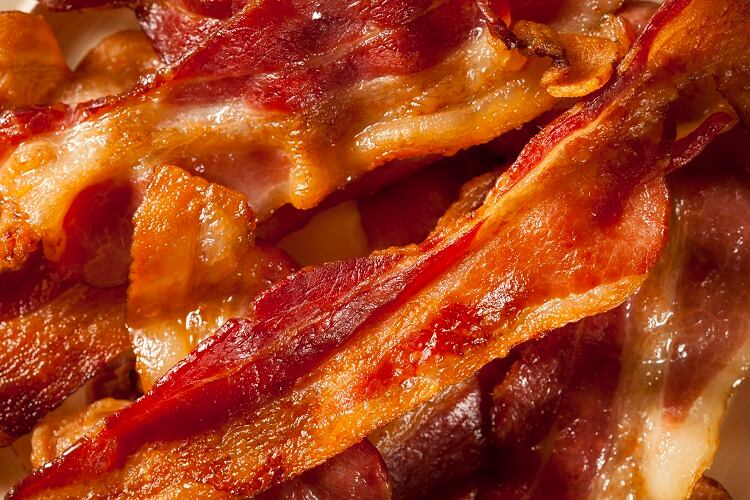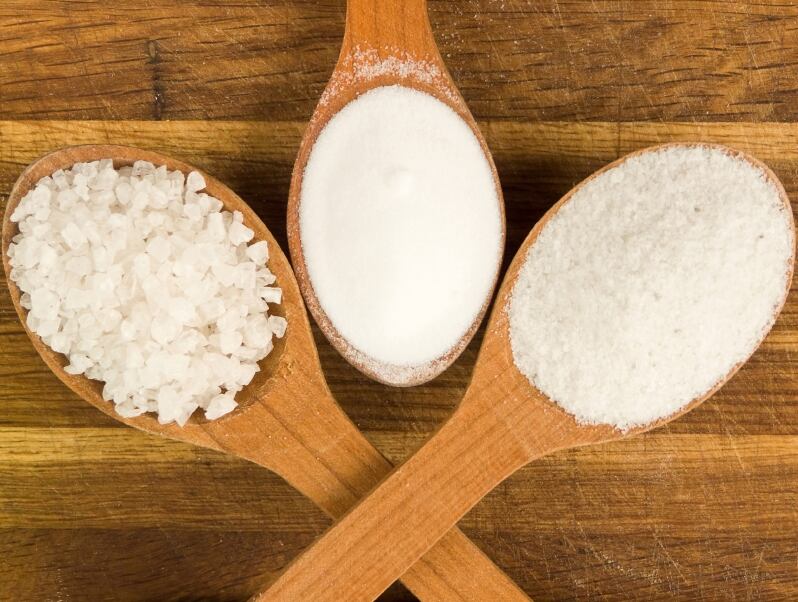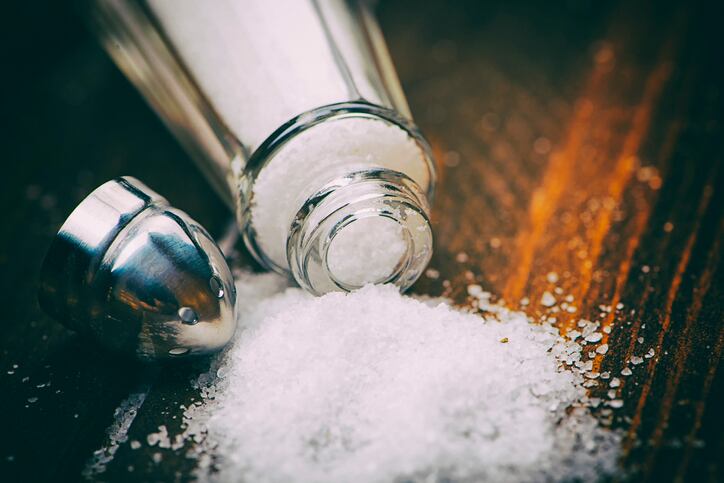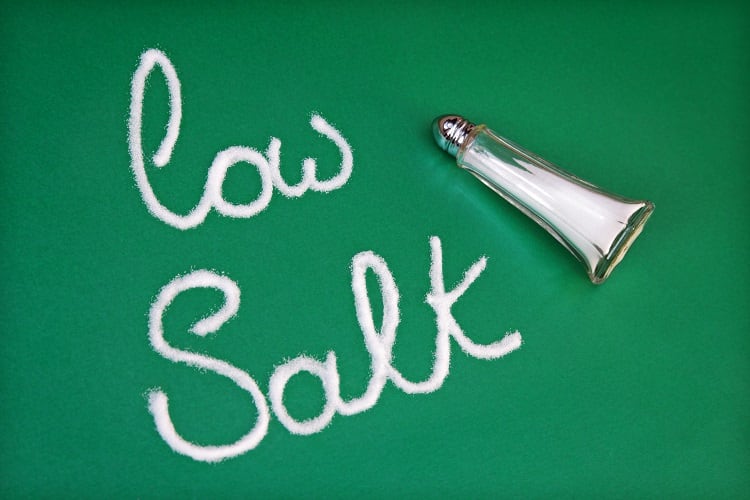A survey conducted by UK campaign group Action on Salt has revealed ‘astonishing’ and marked differences in the salt content of competitors’ bacon products. Findings also highlighted elevated salt concentrations in certain bacon products.
Action on Salt analysed the nutritional values of 171 bacon products from the ten major UK supermarket retailers. Eighty-six percent of these products have a salt concentration equal to, or greater than, seawater, noted the campaign group.
“The saltiest bacon offender for Tesco Finest Unsmoked 8 Wiltshire Cure Back Bacon Medallions,” according to Action on Sugar, “with a staggering 5.3g/10g”.
Other high salt products surveyed include Aldi’s Everyday Essentials Smoked Streaky Bacon, Asda’s The Butcher’s Selection Reduced Fat Unsmoked Bacon Medallions, and Iceland’s Smoked Bacon Medallions.
For Sonia Pombo, campaign manager for Action on Salt, ‘high salt’ levels mark a lack of progress in salt reduction. “Given the fact that bacon is the biggest contributor to salt after bread in the UK diet, and that we are still far exceeding our daily salt targets, it’s shocking to learn that food manufacturers are still ignoring the voluntary salt reduction targets and putting profits before the health of the nation.”
Action on Salt is accusing food manufacturers of ‘pathetic progress’ on salt reduction. If voluntary targets aren’t working, then what would a mandatory strategy look like? According to Action on Salt’s Pombo, the salt reduction strategy could take inspiration from the UK’s sugar tax.
The Soft Drinks Industry Levy (SDIL), implemented in April 2018, charges manufacturers in two tiers: a lower rate of 18p per litre for beverages containing 5g sugar per 100ml or more; and a higher rate of 24p for those with 8g sugar or more.
Public Health England's salt reduction strategy
UK consumers are eating too much salt – around 8g per day, according to Public Health England (PHE). This figure is one-third higher than the government’s maximum recommendation of 6g per day for adults.
“This is concerning because excess salt can lead to high blood pressure, which triples the risk of heart disease and strokes, two of the leading causes of death for adults in the UK,” noted the UK advisory body.
“With salt in many of our foods and drinks, it’s easy to see how people are consuming too much without realising it. In fact, about four-fifths of our intake comes from salt already in the foods we buy.”
The UK government has been challenging food manufacturers to reduce salt levels for several years, with salt reduction targets published in 2006, 2009, 2011 and 2014. PHE is managing the salt reduction strategy alongside their sugar reduction and reformulation programme, in support of the government’s broader childhood obesity play.
In July 2019, the UK government reported that the ‘hugely successful’ SDIL has removed the equivalent of 45,000 tonnes of sugar from soft drinks.
“We have seen great success with the soft drinks industry levy in driving reformulation, the government must now consider doing the same for key contributors of salt in UK diet, such as bacon,” said Pombo. “This way, everyone’s health benefits, including the socially deprived.”
‘Lower salt bacon is easily possible’
Action on Salt’s survey results also revealed variances in salt content across different brands. Indeed, “some bacon contains nearly four times more salt than competitor brands, showing lower salt bacon is easily possible”, noted the campaign group.
The least salty bacon product analysed was The Co-operative Reduced Fat Unsmoked Bacon Medallions, which contains 1.45g salt per 100g.
Other lower salt alternatives include Freshcure Reduced Salt Smoked Back Bacon Rashers, Asda’s The Butcher’s Selection Reduced Fat Smoked Bacon Medallions, and Iceland’s Unsmoked Streaky Bacon.
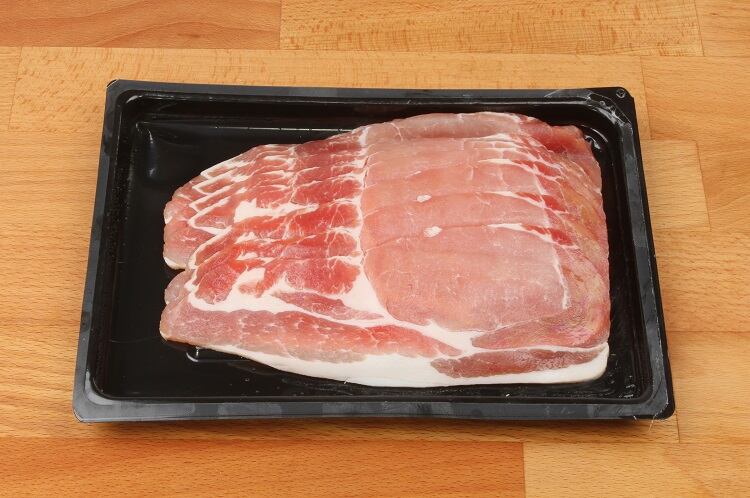
Following up with the British Meat Processors Association (BMPA), chief executive Nick Allen highlighted that such figures are based on declaration, rather than laboratory analysis. “The declarations are at higher levels to make sure the information is within the required tolerances when tested,” he explained.
The BMPA is conducting laboratory analysis work to establish ‘what is actually in the bacon’, and early findings appear to show results at lower levels than the declarations, Allen revealed.
“That said, the variation is unnecessary as are some of the levels and we do believe there is scope to reduce these from where they are now. The reason for the work that we are doing is to identify what is actually being used and then to encourage reduction,” the chief executive told FoodNavigator.
The BMPA does recognise this as an issue, and industry is working together to make reductions, he confirmed, adding that discussions regarding further reductions of salt need to involve retailers as well, “as obviously reductions can have an impact on shelf life, food safety, taste, and also food waste”.
Can bacon be part of a healthy diet?
According to the British Nutrition Foundation (BNF), there is a link between consumption of processed meats like bacon, and an increased risk of bowel cancer.
“We don’t know exactly what is causing this association and the salt and saturated fat content [that] may be involved, but there are other potential factors too,” BNF nutrition communications manager Bridget Benelam told FoodNavigator.
“The government recommends that those consuming more than 90g of red and processed meat a day, should cut down to 70g per day.”
The British Nutrition Foundation (BNF) agrees that it is possible to lower salt levels in bacon products, suggested that consumers pay attention to labels in-store.
“The salt content of bacon does vary and so it is technically possible to produce bacon with salt at the lower end of this range, although it should be noted that salt plays a role in the preservation of bacon, and so food safety needs to be considered too,” BNF nutrition communications manager Bridget Benelam told FoodNavigator.
“Overall our salt intakes are too high. Manufacturers and retailers have done a lot to reduce the salt content of foods but more can be done and new salt targets for industry are expected from Government in 2020.
“For consumers, it’s worth checking nutrition labels and choosing products with less salt.”
Action on Salt calls for mandatory colour coded labelling

Concerning food labels, Action on Salt noted that all 171 products surveyed should carry a red traffic light label for salt, bar one: The Co-operative’s Reduced Fat Unsmoked Bacon Medallions.
Close to three-quarters (74%) of the products surveyed did carry colour coded labelling, which Action on Salt said marks an improvement. In Action on Salt’s 2012 bacon survey, just over half (51%) provided ‘some form of labelling’ front of pack.
According to the campaign group’s findings, only Tesco and Iceland opted for no front of pack label on any of their bacon products, which Action on Salt said puts their customers at a disadvantage, “as it is the only way to knowingly make a healthier choice”.
Action on Salt nutritionist Zoe Davies said a higher uptake of colour coded nutrition labelling was welcomed by the campaigners. However, “some retailers have completely avoided it or even removed it, and the out of home sector doesn’t use it at all, putting their customers at a disadvantage when looking for healthier alternatives.
“Government should seize the opportunity of Brexit, and set mandatory colour coded front of pack labelling immediately, to make it easier for customers to choose healthier options”.


